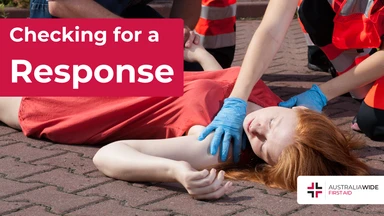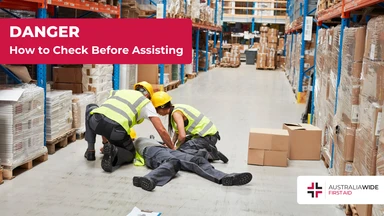First Aid for Epileptic Seizures


As a leading provider of First Aid training courses in Sydney, we’re keen to share knowledge about careful management of epileptic seizures.
It’s important not to overlook the fact that the side-effects of epileptic episodes include fatalities. Medication, however, helps mitigate the situation for many.
For up to 30 per cent of epilepsy sufferers in Australia, however, seizures remain a danger.
What you can do to minimise the risks with epileptic seizures?
Read on to learn more about the dangers of epilepsy and how First Aid training can help.
There are a number of risks related to epileptic seizures, particularly when they are not controlled by medication and when those seizures are inadequately managed.
For example, a tonic-clonic seizure — when the body stiffens before its movements become jerky — could happen while the person is climbing or swimming. This type of seizure is already critical, but here it is compounded by an activity that already involves risks of its own.
Regardless of when an epileptic seizure occurs, medical intervention is crucial to help manage the risks.
Here are 8 First Aid pointers about what to do and what not to do if you happen to be present when someone experiences a tonic-clonic seizure:
If you are in any doubt about how dangerous the epileptic seizure is, or how it may have affected the person, call Emergency Services on 000.
Call an ambulance for a person experiencing epileptic seizure when:

March 18, 2025
Checking for a response is critical before proceeding with any first aid assistance. Knowing if a casualty is conscious or not allows you to use the appropriate techniques. Using gentle but firm responsiveness techniques, such as the COWS method, mean you can check for a response while remaining respectful to the casualty.

February 25, 2025
When coming across someone who appears unconscious, injured, or in need of medical help, it’s instinctive to rush to their aid. Ensuring the scene is safe before assisting the person is not only a fundamental principle of first aid but also critical to preventing further harm.

March 8, 2024
Becoming a first aid trainer in Australia is a rewarding and impactful career choice that allows individuals to make a significant contribution to the community by imparting life-saving skills.